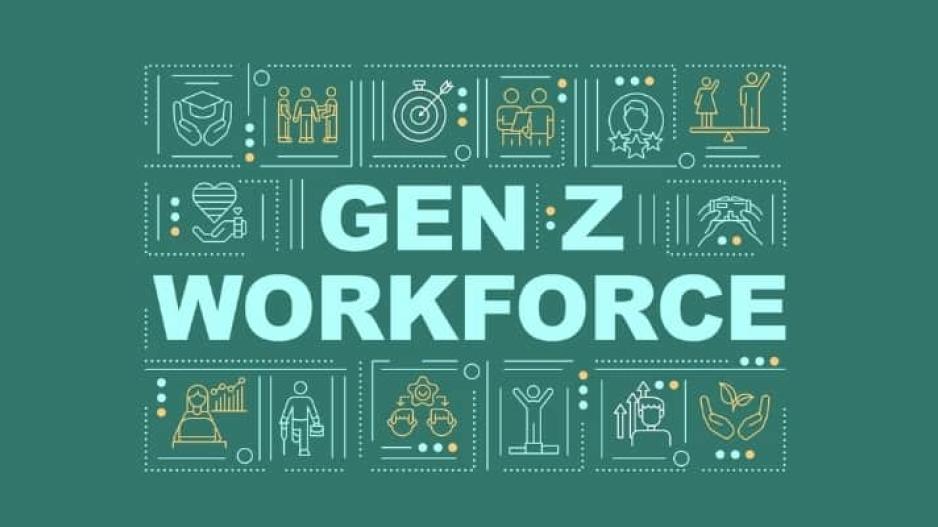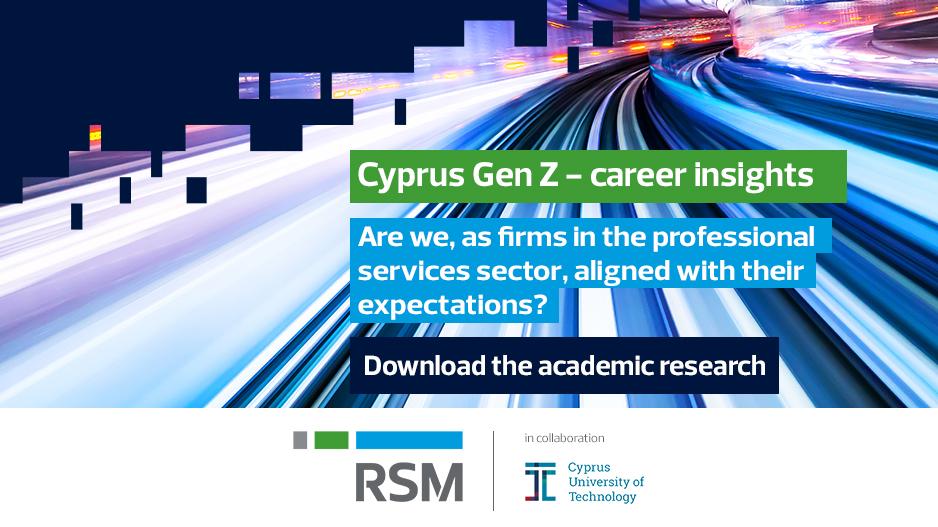Gen Z and the Future of Work in Cyprus
Key Findings About How Young Cypriot Talent Perceives Their Future Careers and What Employers Must Do to Meet These Expectations
Generation Z is redefining the expectations of their professional careers. A new academic research titled "Cyprus Gen Z – Career Insights", conducted by RSM Cyprus in collaboration with the Cyprus University of Technology (CUT), offers key findings about how young Cypriot talent perceives their future careers and what employers must do to meet these expectations.
The research, led by Nicoletta Odysseos and Athos Economides, graduates of CUT, delves into the career aspirations of students in finance, accounting, and management fields. Through questionnaires distributed to students from both public and private universities in Cyprus, and representatives of member firms of the Institute of Certified Public Accountants of Cyprus (ICPAC), the study highlights a generational shift in workplace expectations and the challenges employers face in attracting new talent.

The findings of the research present a fascinating insight into the career outlook of Generation Z in Cyprus. Among the most significant discoveries are:
Undecided Career Paths: A striking 66% of students surveyed are still uncertain about which sector they want to work in, with only 7% expressing an interest in audit and assurance roles.
Preference for Larger Firms: 71% of undergraduates are drawn to working in well-established, large firms in the Cyprus market, highlighting the security and structure these companies offer.
Education and Certifications: Following graduation, 35% of students are unsure of their next academic step, while 25% intend to pursue ACCA qualifications, and 10% lean towards ACA certifications.
Salary and Flexibility: Salary is a major factor for Gen Z when selecting a job, with compensation schemes playing a crucial role. Furthermore, 85% of respondents emphasized the importance of flexible working hours.
Workplace Environment: The new generation values modern, well-equipped workspaces, with facilities like gyms and in-house dining options seen as appealing.
Employer Communication: Effective communication and feedback from employers are highly valued by this generation.
The research addresses an ongoing issue in Cyprus, where professional services firms, particularly in the assurance, tax, and consulting sectors, struggle to attract and retain young talent. Although there has been a growing interest in accounting, finance, and related fields, many graduates opt for career paths outside these industries.
As George Themistocleous, CEO of RSM Cyprus, remarked, “We collaborated with CUT students to better understand the expectations and demands of the younger generation in Cyprus. Their insights allow us to adapt our strategies and create better communication channels with this new workforce.”
This research underscores the importance of aligning the needs of both employees and employers. In today’s competitive market, companies must adapt their practices to accommodate Gen Z’s desire for flexibility, work-life balance, and meaningful engagement in their roles.
Interestingly, the study reveals a perception gap between Generation Z and Generation X, the latter of which prioritizes leadership, teamwork, and career progression. While these are still important, the younger generation is more focused on mental health, societal influence, and personal growth. Firms in Cyprus need to adapt their recruitment and workplace policies to bridge this gap effectively.
Looking ahead, Themistocleous acknowledges that the study’s findings offer valuable guidance to help firms foster a more appealing work environment for the incoming Generation Z and beyond. By understanding the new generation’s mindset, companies can implement strategies that attract top talent while ensuring a mutually beneficial professional relationship.
As firms in Cyprus strive to close the generational perception gap, the "Cyprus Gen Z – Career Insights" research provides a clear roadmap. Many companies already offer flexible working hours, hybrid work arrangements, and professional development opportunities. However, there is still work to be done to meet the full scope of Gen Z's expectations.
For employers, adapting to this new reality is essential. Building a work culture that values communication, flexibility, and employee well-being is no longer optional but necessary to attract the best talent in today’s market.







